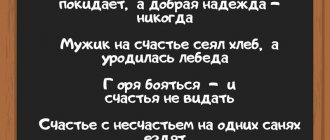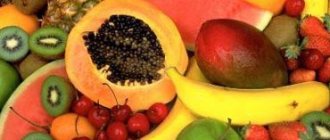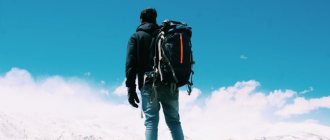Greek proverbs and sayings
Here are several short and easy-to-pronounce Greek proverbs and sayings. First, the original spelling in Greek is given, then a transcription in Russian letters (about the phonetics of the Greek language - here), then a literal translation into Russian and a similar Russian proverb or saying.
- Βοήθα με να σε βοηθώ ν' ανεβούμε το βουνό.
voIta me na se voitO n'anevUme to vunO You help me, I help you, and we climb the mountain Together we can move mountains
- Ένας κούκος δε φέρνει την άνοιξη.
Enas kUkos ze Ferni tin Anixi One cuckoo does not bring spring One swallow does not bring spring
- Έξω απ' το χορό λες πολλά τραγούδια.
Ekso ap to khorO les pollA tragUdya Outside the dance circle you sing a lot of songs A big talker is a bad worker
- Η καμήλα δεν βλέπει την καμπούρα της
and Kamila zen vlepi tin kambUra yew A camel does not see its hump. It sees a twig in someone else's eye, but does not notice a log in its own.
- Kάλλιο πέντε και στο χέρι, παρά δέκα και καρτέρι.
kalyo pende ke sto heri para zEka ke karteri Better five in the hand than ten in a trap Better a bird in the hand than a pie in the sky
KALI ZOI Kaki sons-in-law Good life, bad will Living with the truth - you won’t gain anything
- Το κρασί και τα παιδιά λένε την αλήθεια
then krasi ke ta padya LENE tin Alitya Wine and children speak the truth Drunk as a fellow: what’s on the mind is on the tongue
- Νηστικό αρκούδι δεν χορεύει.
NisticO arkUzi zen choirEvi A hungry bear does not dance Nightingales are not fed fables
- Όταν λείπει ο γάτος, τα ποντίκια χορεύουν.
Otan lipi o gatos ta ponIkya khorevun When the cat is away, the mice dance. No cats - free space for mice
- Όποιος καεί στο γάλα φυσάει και το γιαούρτι.
Opyos kaI hundred gala fisAi ke to yaUrti He who has been burned by milk blows on yogurt. Having been burned by milk, he blows on water
- Όποιος δεν έχει μυαλό έχει πόδια.
Opyos zen Ehi mialO Ehi poses He who has no mind has legs A bad head gives no rest to his legs
- Ο άνθρωπος ότι μπορεί κι ο Θεός ότι θέλει.
o Anthropos Oti boRI ki o theos Oti feli Man (does) what he can, and God does what he wants. Man posits, and God disposes
- Σπίτι που δεν το βλέπει ο ήλιος, το βλεπει ο γιατρός.
sleep pu zen then vlepi o Ilyos then vlepi o yatros The house into which the sun does not look, the doctor looks in. Where the sun rarely sets, the doctor often comes there
- Τα πολλά λόγια είναι φτώχια.
ta pollA logya Ine ftOkhya Many words - poverty Silence is golden.
- Κι' οι τοίχοι έχουν αφτιά.
ki and tihi Ekhun aftya And the walls have ears And the walls have ears
- Μπρος φίλος και πίσω σκύλος.
Bros filos ke piso skilos A friend is in front, and a dog is behind, caresses your eyes, and barks behind your eyes.
Greek proverbs and sayings with translation and analogue in Russian
All materials for learning the Greek language For each Greek proverb and saying there is a literal translation of the expression into Russian and a similar or similar Russian proverb or saying.
Μαζί δεν κάνουμε και χώρια δεν μπορούμε. Translation: We can’t get along together, but we can’t live apart. Russian equivalent: Together it’s cramped, but apart it’s boring.
Ο χρόνος που περνάει, πίσω δεν γυρνάει. Translation: Time that has passed cannot come back. Russian analogue: You can’t turn back the past - not on horseback, you can’t turn it back.
Άκου πολύ, μίλα λίγο, πίστευε ακόμα λιγότερα. Translation: Listen a lot, talk a little, believe even less. Russian analogues: The word is silver, silence is gold. Keep your fist in your pocket and your tongue on the lasso.
Όσα μυαλά τόσες γνώμες. Translation: How many minds, so many opinions Russian analogues: How many heads, so many minds. One hundred heads, one hundred minds. How many people, so many judges.
Δεν είναι κανείς ποτέ πολύ μεγάλος για να μάθει. Translation: No one is ever too old (adult) to learn. Russian equivalent: Learning is always useful.
Απ' έξω κούκλα κι από μέσα πανούκλα. Translation: On the outside there is a doll (i.e. a beauty), but on the inside there is a plague. Russian equivalent: You look at the picture, but if you look at it, it’s a beast.
Δες μορφή καί δες ψυχή. Translation: Look at the appearance, look into the soul. Russian equivalent: Eyes are the mirror of the soul
Νηστικό αρκούδι δεν χορεύει. Translation: A hungry bear doesn't dance. Russian equivalent: Nightingales are not fed fables.
Μήνα που δεν έχει ρο, ρίξε στο κρασί νερό. Translation: If there is no letter “ro” in the month (i.e. in its name), then (at this time of year) add water to the wine. Russian equivalent: Drink, but don’t drink your mind away.
Κάτσε στ' αβγά σου. Translation: Sit on your balls. Russian equivalent: Better a bird in the hand than a pie in the sky.
Από χείλη σε χείλη το μαθαίνουν χίλιοι. Translation: Thousands learned this from lip to lip. Russian analogues: I told my godfather in confidence, and she told the whole world. You tell the chicken, and she tells the whole street. The pig will tell the hog, and the hog will tell the whole city.
Από το ένα αυτί μπαίνει κι από το άλλο βγαίνει. Translation: It goes into one ear, and out of the other. Russian equivalent: It goes into one ear, and out of the other.
Το μήνα που δεν έχει Σάββατο. Translation: In the month in which there is no Saturday. Russian equivalent: After the rain on Thursday.
Στο ξένο κρασί νερό μη βάζεις. Translation: Don't add water to someone else's wine. Russian analogues: Don’t poke your nose into other people’s millet. Don't poke your nose into someone else's question.
Βοήθα με να σε βοηθώ ν' ανεβούμε το βουνό. voIta me na se voitO n'anevUme to vunO You help me, I help you, and we climb the mountain Together we can move mountains
Ένας κούκος δε φέρνει την άνοιξη. Enas kUkos ze Ferni tin Anixi One cuckoo does not bring spring One swallow does not bring spring
Έξω απ' το χορό λες πολλά τραγούδια. Ekso ap to khorO les pollA tragUdya Outside the dance circle you sing a lot of songs A big talker is a bad worker
Η καμήλα δεν βλέπει την καμπούρα της and KAMILA ZEN VLEPI tin KAMBURA yew A camel does not see its hump A mote in someone else's eye sees, but does not notice a log in its own
Kάλλιο πέντε και στο χέρι, παρά δέκα και καρτέρι. kalyo pende ke sto heri para zEka ke karteri Better five in the hand than ten in a trap Better a bird in the hand than a pie in the sky
Καλή ζωή, κακή διαθήκη. KALI ZOI Kaki sons-in-law Good life, bad will Living with the truth - you won’t gain anything
Το κρασί και τα παιδιά λένε την αλήθεια then krasi ke ta padya lene tin alitya Wine and children speak the truth Drunk as small: what is on the mind is on the tongue
Νηστικό αρκούδι δεν χορεύει. NisticO arkUzi zen choirEvi A hungry bear does not dance Nightingales are not fed fables
Όταν λείπει ο γάτος, τα ποντίκια χορεύουν. Otan lipi o gatos ta ponIkya khorevun When the cat is away, the mice dance. No cats - free space for mice
Όποιος καεί στο γάλα φυσάει και το γιαούρτι. Opyos kaI hundred gala fisAi ke to yaUrti He who has been burned by milk blows on yogurt. Having been burned by milk, he blows on water
Όποιος δεν έχει μυαλό έχει πόδια. Opyos zen Ehi mialO Ehi poses He who has no mind has legs A bad head gives no rest to his legs
Ο άνθρωπος ότι μπορεί κι ο Θεός ότι θέλει. o Anthropos Oti boRI ki o theos Oti feli Man (does) what he can, and God does what he wants. Man posits, and God disposes
Σπίτι που δεν το βλέπει ο ήλιος, το βλεπει ο γιατρός. sleep pu zen then vlepi o Ilyos then vlepi o yatros The house into which the sun does not look, the doctor looks in. Where the sun rarely sets, the doctor often comes there
Τα πολλά λόγια είναι φτώχια. ta pollA logya Ine ftokhya Many words - poverty Silence is golden.
Κι' οι τοίχοι έχουν αφτιά. ki and tihi Ekhun aftya And the walls have ears And the walls have ears
Μπρος φίλος και πίσω σκύλος. Bros filos ke piso skilos A friend is in front, and a dog is behind, caresses your eyes, and barks behind your eyes.
All materials for learning Greek
Proverbs and sayings in Greek
βάλτε το καλά στο μυαλό σας - cut it on your nose;
ο χορτασμένος του νηστικού δεν πιστεύει - the well-fed does not understand the hungry
τα κάνει κρεμαστάρια - green grapes; The eye sees, but the tooth numbs
There would be no happiness, but misfortune would help
πέσε πίττα να σε φάω is waiting for the pie to fall into the mouth; Give him everything that is ready; Chew it and put it in his mouth;
δεν φοβάται ο παστουρμάς τ' αλάτι - he went through fire, water and copper pipes
ούτ' ώμος, ούτε ψημένος (ούτε και τηγανισμένος) - neither fish nor meat
τρώγοντας έρχεται η όρεξη - appetite comes with eating;
περί ορέξεως ουδείς λόγος - there is no arguing about tastes, there are no comrades for taste and color
κατά πού (or όπως) στρώσεις, θα κοιμηθείς - as you go to bed, so will you sleep; What goes around comes around
ό,τι σπείρεις θα θερίσεις - what goes around comes around
food is of no use to him; not feed for the horse;
τα νιάτα και τα γρόσια δεν κρύβονται - you can’t hide youth and wealth
θα σου δείξω πόσα απίδια βάζει ο σάκος! - I’ll show you where the crayfish spend the winter!
big and rich are never guilty
καθαρός ουρανός αστραπές δεν φοβάται - the clear sky is not afraid of lightning
ο πνιγμένος από τα μαλλιά του πιάνεται - a drowning man clutches at a straw
πέθανε να σ'αγαπώ, ζήσε να μη σε θέλω - what we have we do not keep, having lost it we cry
άλλοι σκάφτουν και κλαδεύουν κι' άλλοι πίνουν και μεθάνε - some plant, while others reap the fruits
Greeks
- people of the Indo-European language family, the main population of Greece and Cyprus. Hellenic Greek, a language of the Greek group. The Greek language has several historical versions - the ancient Greek language "Archaea Helleniki glossa", the Middle Greek language "Mesaeonics Helleniki glossa" - which has two varieties: the vernacular language "Glossa dimodis" and "Kafarevousa", the modern Greek language "Nea Helleniki glossa".Appetite comes while eating My grandmother says one thing, but my ears hear something else They stir up trouble in order to catch fish in troubled waters Basturma is not afraid of salt Trouble teaches I was born without pants, so I feel awkward in clothes Idleness is the mother of all evils Idleness in youth poverty in God takes care of old age You can spend your whole life talking with a polite person An aimless mind is double work The library is a pharmacy for the mind God contemplates the mountains and covers them with snow God gave both strength and violence God may and loves a thief, but God did not create the world as the owner of the house and said: let the one who has reason continue his path. God creates, and the devil destroys. The rich and the devils are siblings. Fear the quiet river, not the noisy one. The disease enters in bags and comes out with needles. The doctor looks at the sick, but nature heals. his successor, a doctor, will never get better For the sick - a doctor, and for the dead - cry For the sick - medicine, for the offended - a kind word Big fish eats small fish Big, but the rich are never guilty Barefoot was comforted by seeing the lame Brother remains a brother, even if the enemy I will die of hunger, but let my name be Vojvodina Caress your eyes, and barks behind your eyes At twenty - your mind, at thirty - your life, at forty - your wife, otherwise no intelligence, no life, no wife At twenty you will work, at thirty you will create , at forty you will have it. If you didn’t work, didn’t create, then you don’t have it. A doctor looks into a house where the sun doesn’t shine. Each place has its own custom, each quarter has its own order. Man is alone and heaven is not heaven. In the absence of a cat, mice dance. First of all, the help of God, second neighbor It is important not how long, but how well you lived. Centuries copy each other. The Venetian lost her needle. The camel does not see its own hump. The camel does not see its own hump. skin The wolf is happy with the turmoil The thief makes noise so that the owner comes out The raven will not peck out the crow's eye The doctor is the worst patient Times change each other and the year passes week after week
Greek proverbs and sayings
The seed of modern Greek folk wisdom sprouted from the soil of several ancient civilizations - antiquity, Byzantium and modern Greece. The modern cultural foundation of Hellas carefully preserves proverbs and sayings collected and written down by Aristotle and other ancient philosophers.
The territory of distribution of Greek literature in ancient times was much wider than it is now. A couple of centuries ago, the Greek language was part of the compulsory curriculum of European educational institutions. Along with the basics of ancient linguistics, students were taught a course on Greek culture, because analysis and study of sayings is the key to understanding the soul of the people.
Where did Greek proverbs come from?
In ancient times, information was transmitted from one person to another mainly orally. The thoughts and main philosophical theses of the ancient sages, passing from mouth to mouth, often changed, acquiring a concentrated and simplified form. It was much easier to remember a short, to-the-point thought than several pages of a philosophical treatise. A thinking person (and the Greeks loved to think and knew a lot about it) could, if desired, independently develop a laconic idea, devoting several hours, days, or even years to this activity. Another source of wise expressions were Aesop's fables, which were then very popular. Such catchphrases as “If you chase two hares, you won’t catch either”, “They assigned the wolf to guard the sheep”, and others have reached our time.
The folklore of Ancient Greece had a huge influence on the development of the culture of medieval Europe. Proverbs and sayings were translated directly from Greek or Latin. There are cases where a phrase, originally coined by the Greeks, was lost in time and later attributed to the Romans. This happened with the proverb “The hand washes the hand” - its author is the Greek comedian Epicharmus, but in Europe the proverb was known in Latin - “Manus manu lavat”. Residents of modern Hellas often use the wisdom of their ancestors in ancient Greek form. Sometimes their sound had to be changed to suit the times, but the meaning always remained the same.
After Aristotle's death, his work of collecting folklore was continued by his students - Clearchus and Chrysippus. Later, collecting proverbs became so popular that their study and analysis became an entertaining hobby. Knowing and correctly using sayings was considered a high art, the owners of which enjoyed popular love and popularity.
Modern Greek sayings
With the advent of modern times, Greek national consciousness received active development. An important factor in the fight against the Turkish yoke was the revival of Greek folklore, which would help unite the country, make it more united and stronger.
In the 18th-19th centuries, new editions of Greek proverbs began to be published, edited by D. Darvaris, A. Korais, A. Arvanitis and I. Venizelos. The founder of modern Greek folklore and ethnography, N. Politis, played an exceptional role in the formation of national culture. All his life he was engaged in collecting and analyzing proverbs and sayings common both on the mainland and on the islands of Greece. Although only two books came from his pen, each proverb in them is a pearl of folk art, and is subjected to careful analysis. Politis compared each proverb with its ancient Greek and Byzantine counterparts, determined the level of similarities and differences, and made a conclusion about the origin of the text.
Now Greek proverbs and sayings are again gaining popularity - they are periodically published in magazines such as Laografia, Archio Ponto, as well as in collections of the ethnographic center at the Athens Academy of Sciences.
What do Greek proverbs say?
Most sayings have survived to this day for only one reason - they carried an idea that was close to ordinary people. Elements of folklore, having lost their relevance, quickly faded into oblivion and remained forever on the pages of yellowed parchments.
The fate of proverbs, which reflect the attitude of people towards each other, towards the love of freedom and their own state, turned out to be completely different. They were often used by political and military leaders to unite the people, to show the Greeks that their nation must go against the enemy no matter what. The proverbs are especially strong: “Better death, but in freedom, than life in slavery”, “If I am Greek, then I strive for freedom”, “Faith knows neither doubts nor hesitations”, “The steppes raise horses, and the mountains raise brave men” "
Greek Proverbs - Quotes
They stir up water to catch fish in troubled waters.
| Ακαμάτης νέος, γέρος διακονιάρης. |
You can spend your whole life talking with a polite person. God gave both strength and violence. God may love a thief, but not as the owner of the house. The rich and the devils are brothers. I will die of hunger, but let my name be Vojvodina. A doctor looks into a house where the sun does not shine. At the beginning of the world, the Sun created the lion, and the Moon created the cat. The doctor is the worst patient. Come on, grandpa, I'll show you your vineyard. The village is burning, and the prostitute is washing herself. If I gave you a penny to talk, I'll give you five to keep you quiet. A woman who does not want to knead the dough sifts the flour for five days. We're going to get some wool, and we'll come back shorn. When the letter (p) is missing in the name of the coming month, the wine should be diluted with water. The one in the bran is the one the chickens peck. Where are you going barefoot and on thorns? Licks what he spits on.
| It is better to be apart and in love than to be together and in a quarrel. |
| Από μακρυά και αγαπημένοι παρά απο κοντά και μαλωμένοι. |
| Little by little, the unripe grapes will taste like honey. |
| Αγάλι-αγάλι γίνεται η αγουρίδα μέλι. |
| A dead person is never brave. |
Many people like betrayal, but no one likes the traitors themselves. Rely on Athena, and don’t shy away from work yourself. Never ask about things that don’t concern you and you will never have troubles. We shit ourselves and the boat tilts. Some people dream of a beard, others, who have a beard, spit on it. A doctor's mistake is a judgment from God. The pot rolled and found the lid. Pop doesn't wish well to pop. A man who has lost a pig listens to the grunting. During drought, hail is also good. From the face - a doll, but inside - a plague. Today is still early, but tomorrow will be late. Now that you have eaten the bull, will you really leave the tail? How much our mother-in-law drinks, the more friendly she will be to us. Watch your son so that he does not fall into the well, and you will not have to say: “This is the will of God.”
| You will become lazy, you will drag your money around. |
| Ακαμάτης νέος, γέρος διακονιάρης. |
The chicken is old, but the broth is sweet. You can see the well-fed by the lips, the hungry by the cheeks. The wolf has a wide head because he handles his own affairs. Whoever has a beard will also have a comb. Those who have a lot of pepper season their cabbage with it. Among the blind, one-eyed is in charge. Honor has only one measure: if you have honor, then you are a man. A wise doctor and an experienced captain will never hurt. Anyone can use a fallen oak tree for firewood. Man does what he can, and God does what he wants. The closer to the chicken coop, the more worries the fox has. Rather than let something good go to waste, it would be better if the belly bursts. The better you know a person, the more you love, and the more you love, the better you know. An honest life is a bad testament. Honor is priceless and a joy to those who have it. The clear sky is not afraid of lightning. Whatever he was digging for, he ended up in it himself. What you cut into your bowl goes into your spoon. Someone else's grief doesn't hurt. I'll put both his feet in one shoe. I'll show you how many pears will fit in the bag! The tongue is boneless, but grinds bones. Greek proverbs and sayings - subscribe.ru
Greek proverbs
GREEK PROVERBS AND SAYINGS
η παροιμία λέει. the proverb says.
βάλτε το καλά στο μυαλό σας - cut it on your nose;
ο χορτασμένος, τον νηστικό δεν τον πιστεύει - the well-fed does not understand the hungry
τα κάνει κρεμαστάρια - green grapes; The eye sees, but the tooth numbs
There would be no happiness, but misfortune would help
πέσε πίττα να σε φάω is waiting for the pie to fall into the mouth; Give him everything that is ready; Chew it and put it in his mouth;
δεν φοβάται ο παστουρμάς τ' αλάτι - he went through fire, water and copper pipes
ούτ' ώμος, ούτε ψημένος (ούτε και τηγανισμένος) - neither fish nor meat
τρώγοντας έρχεται η όρεξη - appetite comes with eating;
περί ορέξεως ουδείς λόγος - there is no arguing about tastes, there are no comrades for taste and color
κατά πού (or όπως) στρώσεις, θα κοιμηθείς - as you go to bed, so will you sleep; What goes around comes around
ό,τι σπείρεις θα θερίσεις - what goes around comes around
food is of no use to him; not feed for the horse;
τα νιάτα και τα γρόσια δεν κρύβονται - you can’t hide youth and wealth
θα σου δείξω πόσα απίδια βάζει ο σάκος! - I’ll show you where the crayfish spend the winter!
big and rich are never guilty
καθαρός ουρανός αστραπές δεν φοβάται - the clear sky is not afraid of lightning
ο πνιγμένος από τα μαλλιά του πιάνεται - a drowning man clutches at a straw
πέθανε να σ'αγαπώ, ζήσε να μη σε θέλω - what we have we do not keep, having lost it we cry
άλλοι σκάφτουν και κλαδεύουν κι' άλλοι πίνουν και μεθάνε - some plant, while others reap the fruits
άλλαξε o Μανωλιός και φόρεσε τα ρούχα άλλοιως - nothing has changed, everything remains the same; rehanging trousers on another nail;
This, but not that, Fedot, but not that
άλλου τα κακαρίσματα κι' άλλου γεννάν οι κότες - the hen doesn’t always cackle where the egg was laid
ανάμεσα σφυρί κι' αμόνι - between a rock and a hard place
κατά τον καιρό και το χορό - everything has its time
κατά μάνα, κύρη είναι γιος και θυγατέρα - the apple doesn’t fall far from the tree
you are to the chicken coop, the more worries the fox has
το σκυλί το γεράζουν οι ξένες έννοιες - it is not work that ages, but care
με μύγες ο λύκος δεν χορταίνει - you can’t feed a wolf with flies; like grain to an elephant;
δίχως έννοια αν περπατάς που και που θα σκουντουφλάς - whoever does not look at his feet may stumble
πες μου με ποιον πας να σου πω ποιος είναι - tell me who your friend is, and I will tell you who you are.
ο λύκος άμα γεράσει γίνεται κοροΐδο των σκυλιών - the old wolf becomes a laughing stock for dogs
προκειμένου να χαλάσει θα το φάω - rather than waste something good, let it be better for your belly to burst.
βουνό με βουνό δε σμίγει - mountain does not converge with mountain, but man will converge with man
στερνή μου γνώση να σ' είχα πρώτα - strong in hindsight
το κακό σκυλί ψόφο δεν έχει - evil people live for two centuries;
τα σκυλά γαυγίζουν, το καραβάνι περνάει - the dog barks, and the caravan moves on; the dog barks - the wind blows
ξένος πόνος όνειρο - someone else’s grief does not hurt
σκαλίζοντας η κόττα βγάνει τα μάτια της - what he dug, he got into
καθένας με τον πόνо του - whoever hurts, talks about it;
μπρος φίλος και πίσω σκύλος - caresses in the eyes, but barks behind the eyes; licks from the front and scratches from the back
οποίος έχει πολύ πιπέρι βάζει και στα λάχανα - he does not know what to do with the money; whoever is rich is the one who sells
αν δεν φωνάζει το μωρό, δεν το ταΐζει (or δεν του δίνει να φάει) η μάνα του — the child does not cry - the mother does not understand







